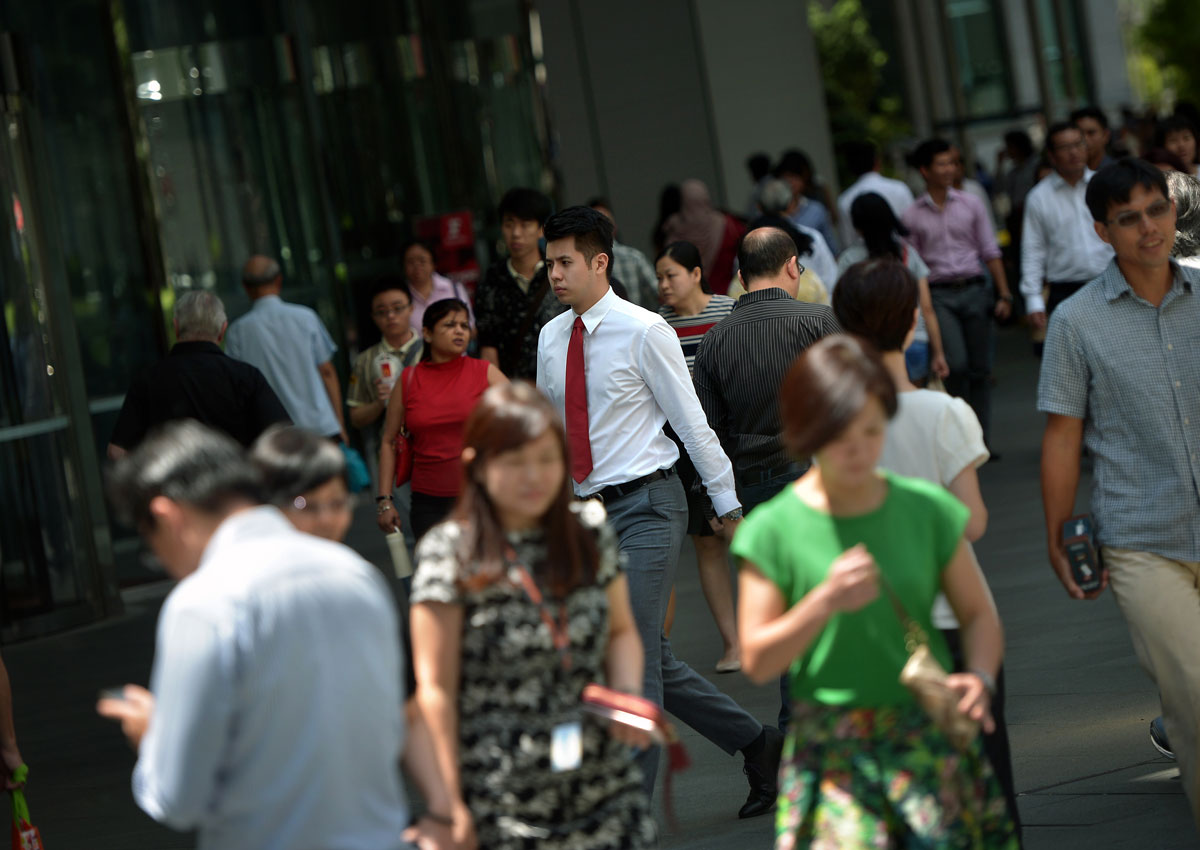NTUC will work with employers and govt to minimise structural unemployment, he says
THE labour movement in Singapore will have to quicken its pace in helping workers and companies cope with economic restructuring amid slower growth.
In noting that the current slowdown is cyclical and, “more fundamentally, structural”, Secretary-General of the National Trades Union Congress (NTUC) Chan Chun Sing said in Parliament on Monday: “The labour movement will definitely want to work with employers and the government to make sure that we minimise the occurrences of structural unemployment.
“The faster our structural changes go, the more we need to do this. … Because when growth slows, the manoeuvre space becomes tighter.”
Mr Chan, together with other Members of Parliament (MPs) representing the labour movement, responded on Monday to the Singapore Budget 2016.
The Budget, unveiled by Finance Minister Heng Swee Keat over a week ago, follows on previous ones in which Singapore’s economic restructuring efforts were drawn up in the Transition Support Package in 2013.
Citing consumers’ shift from shopping in malls to shopping on websites as an example, Mr Chan said there was a fundamental shift in the economy, and that workers and companies needed to adapt to that future. This year’s Budget, coming amid slower growth, should thus be viewed as part of the larger picture.
“Only when we have skills for the future and jobs of the future, will our workers have careers of the future,” said Mr Chan.
Structural unemployment is thus an issue that the labour movement must tackle.
One way it can help is to provide career counselling for younger Singaporeans, especially students, so that what they learn in school can remain relevant down the road.
Labour MP Desmond Choo, in suggesting that the government can team up with the labour movement to provide career-counselling services, said students can then make use of “the opportunities to tap the unions’ extensive network to understand jobs through industry networking, workshops and workplace visits”.
There is also a need to pre-empt those already in the workforce from becoming redundant in the future, said the labour MPs.
The labour movement will help those already in the workforce to take up training courses that keep them relevant for the workforce in the future.
At the same time, more efforts can be made to match jobs to displaced workers.
MP Melvin Yong said: “Even before the risk of displacement becomes real, we should help them acquire relevant skills to help them move ahead into new jobs, different jobs and future jobs.”
But even as there is a pressing need to help workers with present unemployment, there is a need to ensure that there are enough retirement safeguards as well.
In this sense, the labour movement will ensure that workers command a respectable pay package that enables them to save up for retirement.
The success of this will have implications on the strength of the social safety net here.
Mr Chan said: “We can then reserve the finite resources for those who are truly in need, because we accept that, even to the best of our abilities, there will be some who will not be able to save up for their retirement.”
Raising productivity will be a long-term effort between the labour movement and the government.
In doing so, Mr Chan called on all parties, including trade associations and trade unions, to work with employers to identify the work processes – by sector or even down to company level – where productivity can be improved.
In particular, he noted that the construction, retail and food and beverage sectors are three that require more attention.
But as restructuring efforts are underway, efforts must be made to ensure that Singapore’s workforce can attract that talents that it needs for the economy to remain competitive on the global stage.
In this sense, what should make up the “Singaporean Core” of the workforce is a globally competitive team that thrives on the diversity of its members, and not an inward-looking “Singaporeans-only” mindset.
Therefore, NTUC will work with employers to ensure that Singaporean workers will have an equal opportunity to “rise up the hierarchy” at their workplace.
Ultimately, there is a need for collaborative efforts from all stakeholders, including workers, to ensure that the workforce is primed for the restructured economy, said Mr Chan.
“It would be such a waste that we have all these good jobs in Singapore, that our people are unable to take on these jobs, and to have them take on these jobs, we have to train them 10, 20 years in advance,” he said.
soonwl@sph.com.sg

This article was first published on April 5, 2016.
Get The Business Times for more stories.






